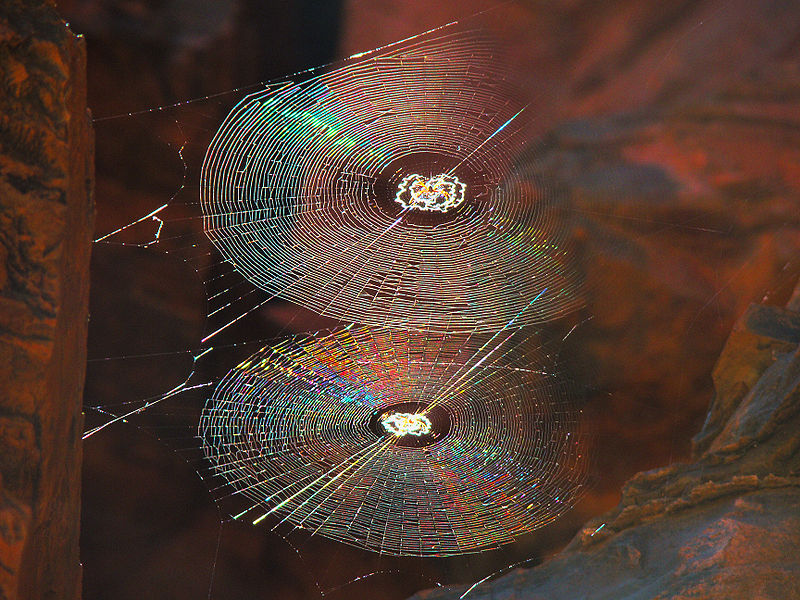"Spiderman" silk could save energy, replace plastics


We won't be dangling from skyscrapers at will, but if science proves successful, genetically engineered silk worms could one day produce substitutes to plastics. The silk would offer substantial energy savings over today's petrochemicals and make greener consumer goods.
Research published in the Proceedings of the National Academy of Sciences journal by scientists from the University of Wyoming has made silk worms a topic of industrial interest - thanks to genetic material from spiders.
Professor Don Jarvis and his team successfully inserted spider genes into silk worms to significantly increase the strength of the silk, BBC News reports. The worms won't be fighting crime, but their silk could make life better for people.
Spider silk is stronger than steel, so it's a suitable replacement for tough plastics. Silk worms produce vastly greater quantities of silk than do spiders, and have long been subject to genetic experimentation.
The petrochemical industry utilizes energy intensive thermochemical reactions to create plastics, and manufacturing processes are dependent on the hydrocarbons that are found in oil. Needless to say, the world’s oil supply is finite and becoming increasingly expensive. Those processes also consume vast quantities of heat and water.
Other alternatives involve converting natural gas into petrochemicals. Start-up Siluria Technologies has received funding to commercialized MIT materials research into biosynthetic technology for metal nanowire catalysts that are grown on a biological template. The catalysts are a replacement for oil.
Spider silk may not be easily produced on the same scale as plastics, but if it does, silk would help solve the environmental problems that are being caused by the improper disposal of plastics. It would also address the potential health risks associated with plastics. Future generations might owe some thanks to the servile silk worm.
This post was originally published on Smartplanet.com